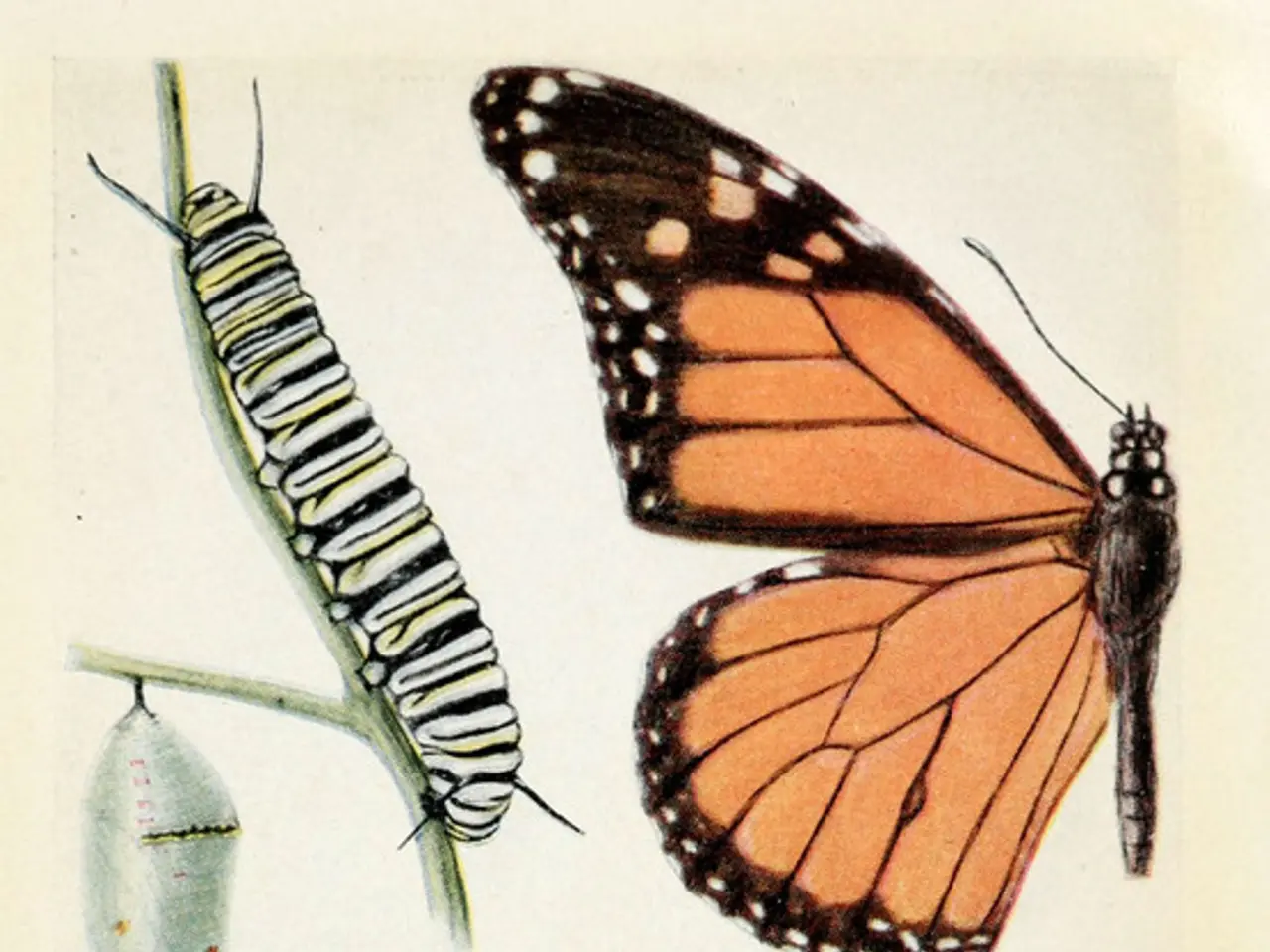Safety of DEET: Potential Risks, Adverse Effects, and Alternative Options for DEET
In the world of insect repellents, one name stands out - DEET. But is it the only option? Let's delve into the world of insect repellents, exploring DEET, its alternatives, and how to choose the right product for you.
DEET, the active ingredient in many insect-repellant products, is well-known for its effectiveness against mosquitoes and ticks. However, it's essential to note that the strength of a DEET product does not necessarily indicate its effectiveness. For instance, a 10% DEET product lasts roughly 2 hours, while a 30% product lasts about 5 hours.
DEET products are generally safe as long as people follow their label instructions and do not use them excessively. However, overuse can lead to skin irritation, rashes, and blisters. It's also crucial to remember that children have sensitive skin, which can react to chemicals in unexpected ways.
If you have concerns about DEET's safety, it's always a good idea to consult a doctor. Some questions you might want to ask include: Is DEET right for me?, How can I apply DEET safely?, What should I avoid when using DEET?, What type of DEET product would be best for me?, What strength of DEET should I use?, Is DEET safe for children?, What are some effective alternatives to DEET?, and What are potential adverse reactions to DEET?
Adverse effects of overexposure or ingestion of DEET include skin irritation, mucous membrane irritation, rashes, blisters, seizures, movements that can make someone feel or appear unsteady, aggressive behavior, agitation, and low blood pressure.
Fortunately, there are DEET-free alternatives available. Common Environmental Protection Agency (EPA)-approved alternatives to DEET for insect repellents include picaridin, oil of lemon eucalyptus (OLE), IR3535, and undecanone.
Picaridin, derived from the black pepper plant, is a synthetic ingredient that the EPA registers as a safe and effective alternative. It offers up to 12 hours of protection against mosquitoes, ticks, and other biting insects. Picaridin is safe for adults, children, and pregnant women.
Oil of lemon eucalyptus, a natural plant-based repellent, is commonly used and EPA-approved, though it may not provide as long-lasting protection as DEET.
IR3535 is another synthetic alternative that occupies a smaller part of the market compared to picaridin and OLE.
Undecanone, found in tomatoes and bananas, has been certified by the EPA to provide protection comparable to DEET for up to eight hours against mosquitoes and four hours against ticks, with a very low toxicity profile. It's safe for skin and eyes.
In summary, when choosing a DEET product, it's crucial to select a strength necessary for the amount of time you will be outside. The EPA has not tested these natural products for effectiveness, and they do not recommend them.
Remember, the key to effective insect repellent use is choosing a product that suits your needs and following the instructions carefully. Whether you opt for DEET or one of its alternatives, stay protected and enjoy the outdoors!
| Alternative | Origin | EPA Approval | Protection Duration | Notes | |----------------------|---------------------------|--------------|-----------------------------------------|-------------------------------------------| | Picaridin | Synthetic, from black pepper | Yes | Up to 12 hours | Safe for adults, children, pregnant women | | Oil of Lemon Eucalyptus (OLE) | Natural, plant-based | Yes | Shorter than DEET | Popular natural option | | IR3535 | Synthetic | Yes | Moderate | Smaller market share | | Undecanone | Natural, from fruits | Yes | Up to 8 hours (mosquitoes), 4 hours (ticks) | Low toxicity, safe for skin and eyes |
[1] Centers for Disease Control and Prevention. (2021). Insect Repellents and Protective Clothing. Retrieved from https://www.cdc.gov/mosquitoes/repellents_with_product_type.html [3] Environmental Protection Agency. (2021). Insect Repellents. Retrieved from https://www.epa.gov/insect-repellents
- When considering insect-repellent options beyond DEET, public health recommendations include picaridin, oil of lemon eucalyptus, IR3535, and undecanone.
- Picaridin, a synthetic ingredient derived from the black pepper plant, is registered as safe and effective by the Environmental Protection Agency (EPA) for up to 12 hours of protection against mosquitoes, ticks, and other biting insects.
- Oil of lemon eucalyptus, a natural plant-based repellent, is EPA-approved and offers protection shorter than DEET, but remains a popular natural choice.
- Undecanone, a naturally-occurring substance found in fruits like tomatoes and bananas, has earned EPA approval for providing comparable protection to DEET for up to eight hours against mosquitoes and four hours against ticks, with a very low toxicity profile.




